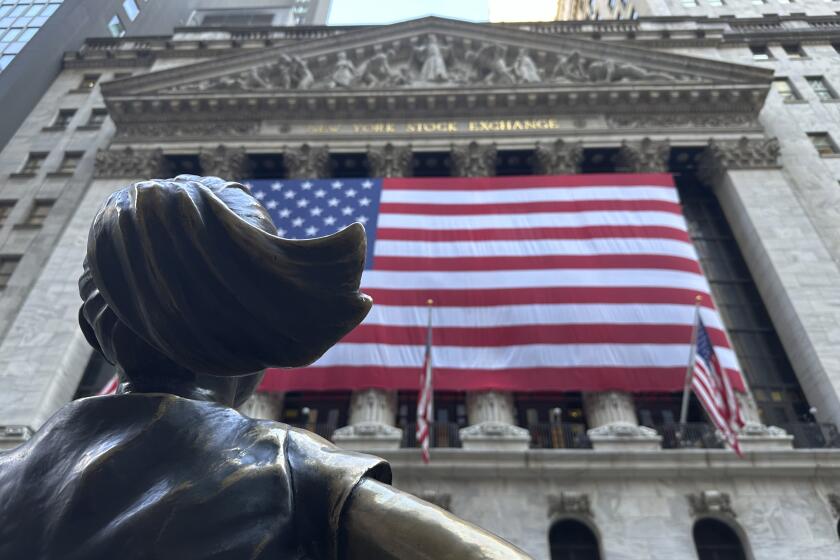W. Hollywood Hotelier Lags in Tax Payments : Revenue: The city wants its $700,000, and worries that Severyn Ashkenazy could go into bankruptcy.
Hotelier Severyn Ashkenazy has fallen behind more than $700,000 in hotel occupancy tax and other payments to West Hollywood, causing officials to worry that the city’s largest private revenue producer may be on the verge of declaring bankruptcy.
City Atty. Michael Jenkins said the $700,000 in tax, penalties and interest payments must be paid or the city will file criminal and civil charges against Ashkenazy, who operates seven hotels in the city.
But Jenkins said the city will work with Ashkenazy to avoid coming to that point.
“It is in the best interest of the city that (Ashkenazy’s) organization be financially healthy, considering what they pay to the city’s coffers,” Jenkins said. The city garners about $2 million a year from Ashkenazy’s hotels.
Ashkenazy Enterprises Inc. owns or operates Le Parc, Le Dufy, Le Reve, Valadon, Cezanne, Mondrian and Bel Age hotels in West Hollywood. A spokesman for the chain could not be reached for comment.
City officials were alerted to the chain’s financial difficulties in August when it missed a quarterly payment on its transient occupancy tax. A weekly schedule was established to make up the back payments, but several checks bounced and had to be reissued and others were not honored because of lack of funds, officials said.
But City Manager Paul Brotzman said he does not anticipate the hotels’ closure even if Ashkenazy goes into bankruptcy. “The hotels are much more valuable as hotels to the creditors than they would be as any other use,” he said.
The delinquent payments have worsened West Hollywood’s bleak financial picture. City officials were already planning to cut spending for 1991-1992 by about $700,000 to cover reduced state revenues.
“The hotel payments (problem) compounds the city’s financial picture,” Brotzman said. “At this time we are pursuing all the legal recourse available to us.”
City officials were relieved when Ashkenazy recently made a $250,000 installment to a fund for affordable housing that was set up under an agreement that allowed him to convert several buildings to hotels years ago.
“(The Ashkenazy people) seem very willing to cooperate,” Jenkins said. “They have been trying hard to solve this problem, but unfortunately they have a cash-flow problem.”
Ashkenazy filed for bankruptcy in 1986 but managed to keep operating after he sold the Valadon to two Illinois savings and loans that were among its creditors. He continues to operate the Valadon.
Although some city officials speculate that Ashkenazy’s current difficulties stem from low occupancy rates, Mayor John Heilman said he believes the problems are deeper.
“It seems to me that he doesn’t manage his affairs very well,” the mayor said. “He is so leveraged that it becomes a problem when he has to pay money out.”
More to Read
Inside the business of entertainment
The Wide Shot brings you news, analysis and insights on everything from streaming wars to production — and what it all means for the future.
You may occasionally receive promotional content from the Los Angeles Times.






